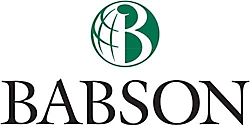The existing technology was outdated, lacking cloud services and other essential infrastructure. Babson required help to manage the expedition and provisioning required for student grants and other projects.
Babson leveraged Microsoft Copilot, Azure AI, and Microsoft 365 to drive the transformation and enable the college to meet the demands of its evolving strategic goals.
Babson developed predictive models that identify students struggling with financial, emotional, and academic challenges. A mathbot was developed to improve learning outcomes in STEM courses and stats. AI tools are helping students develop their AI skills for future careers.













Follow Microsoft